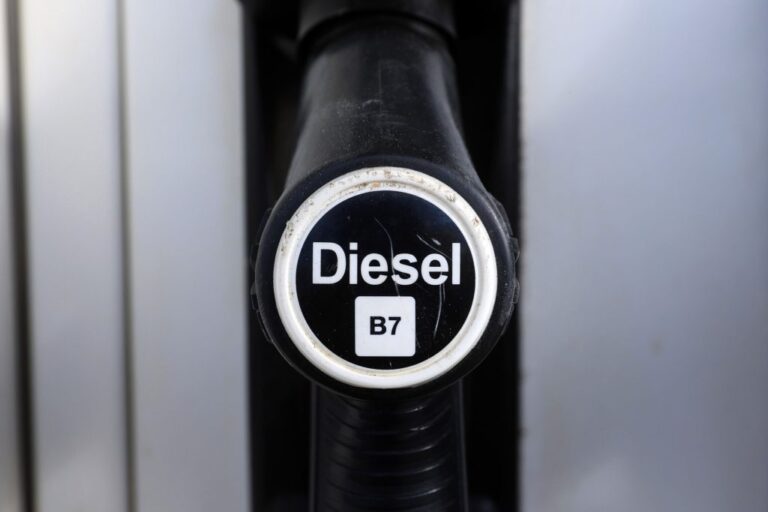You can also listen to this podcast on iono.fm here.
Download the free LiSTN audio app on Google Play, Apple or here.
JEREMY MAGGS: Let’s switch tack now from the economy, and an investigation by the Department of Mineral Resources and Energy (DMRE) has uncovered that around 70 filling stations across the country are selling poor quality diesel. Avhapfani Tshifularo is the executive director of the South African Petroleum Industry Association (Sapia). He’s with us now on the programme. First of all, how widespread is this problem and why is it occurring?
AVHAPFANI TSHIFULARO: So this is a widespread problem, it has been growing over a number of years. We have noticed the volumes of paraffin increasing over a number of years. It cannot be like the paraffin that’s used for illuminating purposes because, as you probably know, the government is running the electrification programme, which means more and more households are no longer dependent on paraffin.
So if you just look at, let’s say some 15 years back, paraffin volumes were sitting at around about 80 to 100 million litres per annum. But if you look at 2022, you see they’ve grown to the level of 1.4 billion litres per annum. What is clear is that you see that the level of discounts that have been offered in some of these service stations, that probably is the one that the DMRE has picked up. It’s quite large compared to a normal discount that you’ll find between comparable stations.
JEREMY MAGGS: Who do you believe is primarily responsible for this activity?
AVHAPFANI TSHIFULARO: I think you can’t pinpoint people, but at least I know our members are complaining about the players who are undercutting them out there in the market because they are offering discounts that do not make sense. But primarily these are people who are motivated (by) greed more than anything else…
At the same time, these are the people who are pocketing the differential because they’re not (motivated to make) the price of diesel affordable to the users, because in any case, it’s going to damage their [diesel vehicle drivers] engines.
So it’s all about making money for themselves because, as you probably know, the fuel levy and Road Accident Fund (RAF) in the price of diesel amounts roughly to R6.00 per litre. So if they mix paraffin and diesel, the biggest chunk of that should have gone to the state in the form of the Road Accident Fund and the fuel levy. So they will pocket that because it means it’s diesel that is not accounted for, it’s not in their books. So it’s just for themselves to enrich themselves.
Read: Fuel prices expected to ease into 2024
JEREMY MAGGS: How easy is it for filling stations to adulterate diesel with paraffin?
AVHAPFANI TSHIFULARO: We don’t think the adulteration itself happens at the site. It happens outside in a depot, in a remote location. That’s where they will mix some diesel and paraffin, and then once they have a blend, they will then transport it to a service station.
So anybody who’s in the service station industry, they will know if they are offered a good deal or a deal that is too good to be true, they will know that it can’t be the real diesel.
But people will take chances. But it can’t be anybody who’s concerned about their reputation because forget about being caught by government, the issue is that your customers, if they know about your practices, they will never come to you again.
JEREMY MAGGS: What processes then or oversight mechanisms are lacking that allow such practices to occur at the depot location?
AVHAPFANI TSHIFULARO: These unscrupulous operators are very much aware of the capacity that exists within government systems because the DMRE itself, it has got an inspectorate, which I don’t think they’ve got more than 20 people for the entire country, and they know for a fact that for them to be caught, the chances are very remote.
They will take a chance; they know that the enforcement is lacking. Sars [the South African Revenue Service] also has got an inspectorate that looks at it from tax perspective to see if people are also mixing diesel with paraffin. But again, that inspectorate is so tiny to deal with a countrywide problem.
JEREMY MAGGS: So how can consumers then identify if the diesel they’re purchasing is adulterated and are there immediate signs or tests that they can perform?
AVHAPFANI TSHIFULARO: Ja, without complicating it, if you are a diesel vehicle owner, you have got a very good idea of the prices in the area where you normally drive. Diesel is not really at the retail level, it’s not regulated, you will know that a particular service station on this side is normally either cheaper or higher than this. But the difference, you’ll know that it won’t be that large between comparative stations.
But the moment you pick up something that is ridiculous, you just know that’s a red flag, you should never, never entertain that, as much as the cost of fuel is too high, don’t get into temptation.
JEREMY MAGGS: And if the consumer suspects or confirms they’ve purchased adulterated diesel, what must they do?
AVHAPFANI TSHIFULARO: So on DMRE website, they’ve got an email address and the number for the compliance team where you can report it there. Then that’s when they will dispatch an inspector to go and have a look.
JEREMY MAGGS: I’m going to leave it there. Avhapfani Tshifularo, thank you very much for joining us, executive director of the South African Petroleum Industry Association.

